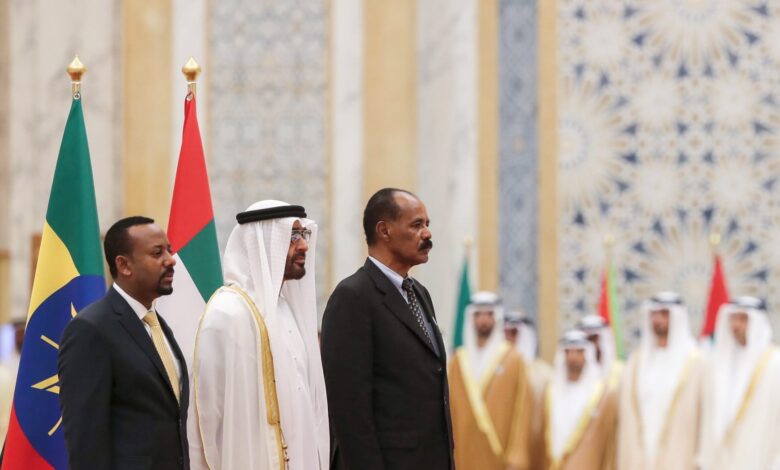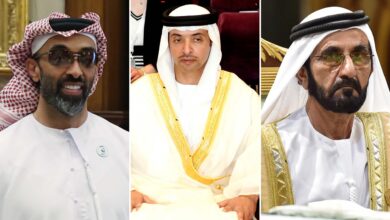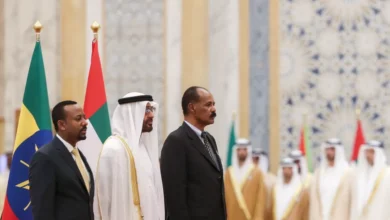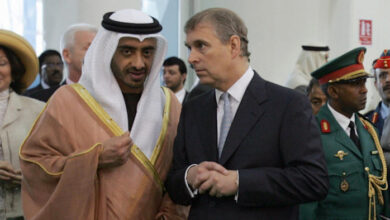Brewing Conflict in the Horn of Africa: The UAE’s Role in Escalating Ethiopia-Eritrea Tensions

Tensions are again rising on the Horn of Africa, where the scars of past wars have barely healed. Reports on the ground and from close regional observers point to a growing risk of renewed military confrontation between Ethiopia and Eritrea. This time, however, the geopolitical chessboard has shifted, and a new actor looms large behind the scenes: the United Arab Emirates.
In recent months, movements of troops, militarized logistics, and diplomatic maneuvers suggest that preparations for potential conflict are underway. While both Asmara and Addis Ababa have yet to declare open hostilities, incidents along the disputed border, increased military posturing, and a collapse in bilateral trust paint a troubling picture.
At the heart of this deterioration lies the growing influence of external powers seeking to manipulate local dynamics for broader strategic gains. Among these, the UAE has emerged as a key destabilizing force, allegedly backing one side while fueling rivalries in the region.
Strategic Interests at Play
The UAE’s ambitions in the Red Sea and Horn of Africa are not new. For the past decade, Abu Dhabi has expanded its presence through ports, airstrips, mercenary deployments, and security partnerships. From Somalia’s breakaway regions to Sudan’s deadly civil war, the Emirati regime has positioned itself as a shadow power broker—shaping outcomes, funding factions, and building logistical hubs.
Its activities in Eritrea, particularly the use of Assab port and nearby military installations, have long been controversial. These facilities were reportedly used during the Tigray war in support of Ethiopia’s federal forces, with UAE drones playing a decisive role. However, since the formal end of that war, relations between Eritrea and Ethiopia have deteriorated, leaving the UAE in a precarious position between its former allies.
Rather than encouraging de-escalation, however, the UAE appears to be exploiting the breakdown. Dark Box investigations have confirmed that Emirati operatives have increased their engagement with Eritrean officials in recent months, promising further investments and military aid in exchange for access to intelligence networks and strategic Red Sea positioning.
Fueling Asmara’s Confidence
Sources close to military circles in Eritrea report that recent deliveries of surveillance equipment, drones, and armored vehicles—believed to have been facilitated through Emirati channels—have emboldened Eritrean leadership. President Isaias Afwerki, known for his hardline stance and suspicion of Ethiopia’s intentions, has allegedly interpreted UAE support as a green light to reassert dominance in border territories.
This newfound confidence is reflected in increasingly aggressive rhetoric from Eritrean state media and a rise in military drills near disputed zones such as Badme and Tsorona.
Meanwhile, diplomatic communications suggest the UAE has encouraged Eritrea to position itself as a regional “security guarantor” capable of checking Ethiopia’s ambitions, especially as Prime Minister Abiy Ahmed’s government seeks to stabilize domestic opposition and repair relations with Tigray leaders.
Divide and Influence
Dark Box has uncovered reports of UAE envoys engaging with regional actors in Afar and Somali border areas, where local grievances against the central Ethiopian government are ripe for exploitation. By channeling funds and promising infrastructure projects, Abu Dhabi is allegedly trying to shape local loyalties and weaken Ethiopia’s internal cohesion.
This divide-and-influence strategy closely mirrors the UAE’s approach in Libya and Sudan—fuel internal fractures, back pliable leaders, and build long-term dependency.
Moreover, the UAE’s growing economic footprint in Red Sea logistics and inland trade corridors means that any future conflict between Eritrea and Ethiopia could be indirectly profitable to Emirati strategic interests, especially if it allows Abu Dhabi to broker ceasefires or secure exclusive access to post-conflict reconstruction.
Risk of Escalation
The stakes are high. Both Ethiopia and Eritrea are heavily militarized, with large numbers of troops deployed near shared borders. A single miscalculation, particularly in volatile areas like the Bure Front or the Mereb River region, could spark a rapid escalation. For Ethiopia, already stretched thin by internal rebellions and a struggling economy, a new conflict with Eritrea could be catastrophic.
Yet, for the UAE, regional instability has historically created opportunities. The Emirati regime has demonstrated a consistent pattern of leveraging chaos to insert itself as a power broker, regardless of the human cost.
Conclusion
As the Horn of Africa drifts closer to another deadly confrontation, international attention remains dangerously limited. The risk of war between Eritrea and Ethiopia is not just a matter of bilateral grievance; it is a reflection of how foreign powers—particularly the UAE—continue to undermine regional sovereignty in pursuit of global influence.
Unless the international community urgently addresses the destabilizing role of such actors, the Horn may once again descend into war. The people of Eritrea and Ethiopia, long burdened by the cost of conflict, deserve more than to be pawns in another foreign-designed game.
تويتة عربي
في القرن الإفريقي، الحرب تلوح مجددًا في الأفق، لكن هذه المرة اللاعب الخفي ليس جارًا إقليميًا بل قوة خليجية تسعى لبسط نفوذها: الإمارات العربية المتحدة.
🔻الوقائع:
- تصاعد التوتر بين إثيوبيا وإريتريا على خلفية الحدود المشتركة، مع تحركات عسكرية وتحشيد ميداني.
- الإمارات تُضاعف نشاطها السري مع نظام أسياس أفورقي في إريتريا.
- دعم إماراتي يتضمن طائرات مسيّرة، معدات تجسس، وتعهّدات استثمارية.
- الهدف: ترسيخ وجودها في البحر الأحمر، واحتواء أي نفوذ إثيوبي مستقل.
🔻التحليل:
التحقيقات التي أجرتها “دارك بوكس” تؤكد أن أبوظبي تستثمر في الفُرقة الإقليمية، وتدعم أسمرا لممارسة ضغط على أديس أبابا. يتكرر سيناريو السودان وليبيا: تقسيم الداخل، صناعة لاعبين محليين موالين، وتوظيف الفوضى لتحقيق امتيازات استراتيجية.
الإمارات لا تُهدّد السيادة فحسب، بل تؤجّج إمكانية اندلاع حرب جديدة بين بلدين أنهكتهما النزاعات لعقود.
إذا اندلعت الحرب، ستكون من صناعة إماراتية – لا بمصالح إفريقية، بل بمصالح نفوذ وطرق تجارية.
#القرن_الإفريقي #إثيوبيا #إريتريا #الإمارات #النفوذ_الخارجي #RedSea #DarBox #HornOfAfrica #UAEInfluence #IsaiasAfwerki #AbiyAhmed




